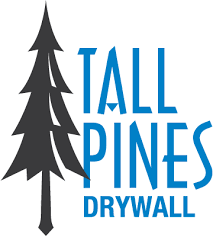Guest Post: Drywall and Rental Companies
Here is a guest post from our friends at Leenan Property Management in Regina, Saskatchewan. Leenan Property Management believes tenants are clients. They manage rental properties for owners who believe in putting the needs of their tenants and the rental property first - respecting the long term investment that is rental properties and the responsibility to provide clients with a safe place to call home. Check out their website or give them a call at 306-994-5475.
Drywall (also known as plasterboard or wallboard) is the most popular material for constructing the home’s interior walls. Since its introduction in 1916, drywall has steadily replaced the plaster as the preferred material for building the inside walls of houses. Every year, several billion square feet of drywall are manufactured for the Canadian construction industry.
Drywall is so popular because:
It is highly versatile. You can use them in several areas of the home: walls, ceilings, flooring, and partitions.
It is easy to transport, cut, and install.
It is non-combustible and easy to paint.
Drywall is lighter and cheaper than solid wood.
It can also be customized to look like other surfaces by painting a façade over its surface.
It is not hard to demolish, making home renovations easy and quick.
It is easy to repair or replace damaged drywall.
But, like all artificial materials, drywall also comes with its problems. Some of the qualities that make it an excellent choice for interior walls also make it problematic.
Drywall is not resistant to water; you cannot install it in areas with high moisture exposure.
Drywall is thinner than plaster, and it is not resistant to impact; it dents and scuffs easily.
Installing drywall is complicated; if not appropriately done, the wall will be prone to damage.
Installing drywall in your rental property can leave it prone to certain types of damage.
The most common types of drywall damage in rental properties
The drywall in a rental property is more liable to get damaged than the drywall in your home. That is because there is a constant flow of tenants in and out of the house. Each new tenant brings a new set of behaviors that will impact the home’s structures differently. The more often the tenants in the home change, the higher the probability of damage to the walls.
The most common types of drywall damage you will encounter in a rental property are:
Furniture scuffs
These happen in those places where your tenants’ furniture meets the walls. Typically, these types of damage have the appearance of pencil or marker stains on the wall.
Small Holes
A door knob may punch a hole in the wall if you swing open the door too hard. Pinholes in drywall may be the result of insect attacks. Termites, wood wasps, and powder-post beetles will damage drywall.
Large Holes
Bigger holes in the drywall can happen as a result of accidents. If a tenant gets into a fight inside the rental or someone throws a hard object at the wall, it could leave a large hole in the wall.
Water damage
Water and drywall do not mix well, but water damage to the drywall is almost unavoidable. That’s because water pipes run inside walls made of drywall, and those pipes can burst or leak.
What to do about drywall damage in your rental property
What is the best way to fix drywall damage in your rental property? Should you Do-It-Yourself or get a drywall repair specialist? As with every decision you take on managing your rental, decide this with an eye on the long-term impact of your choices. Attempting to fix the problem by yourself will cost you less today but more in the long run.
Getting an expert to repair the wall is a better business decision because:
You get a proper damage assessment
Damage assessment gives you an idea of the scope of the problem and the best way to fix it. If you fixed the damaged drywall by yourself, this is not something you would bother. Your primary interest would be to repair the visibly damaged area. However, if your solution is not as complete as the problem requires, you only give it a chance to get worse and cost you more money in the future.
You save time
Typically, most drywall repairs are done when a rental property is vacant. After a tenant moves out, you usually want to fix any damage to the wall before showing the home to potential tenants. How quickly and how thoroughly you do the drywall repair matters. If you have a drywall specialist to do the job, you can have the home ready for showing in the shortest time possible.
You save money
A drywall specialist ensures that you do not have to pay twice to solve the same problem. The specialist knows how to handle any emergency that happens during drywall repair. Drywall damage will often affect other components of the wall. If a non-professional try to fix the drywall, they may not be aware of these related issues or how to deal with them. A drywall specialist, on the other hand, knows what to do to contain every emergency that shows up during the repairs.



